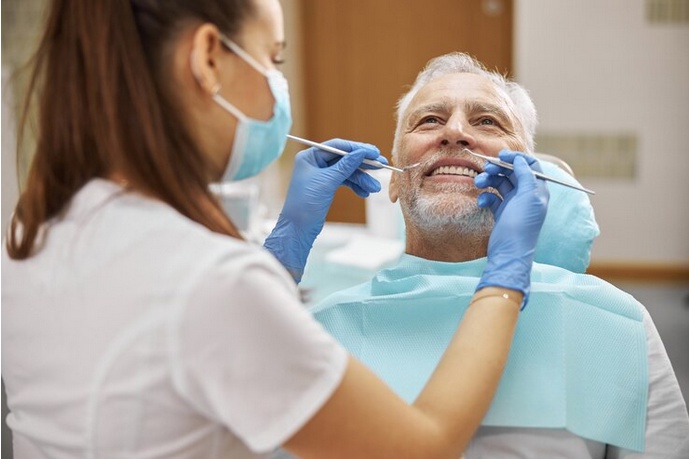Introduction
Unforeseen dental issues can cause significant discomfort and anxiety, often requiring immediate attention. Being prepared to handle such emergencies is essential for maintaining oral health and preventing complications. This article provides insights and practical tips from an emergency dentist in New Orleans on how to effectively manage unexpected dental problems. From understanding common dental emergencies to offering first aid measures, this guide aims to equip individuals with the knowledge they need to navigate dental crises with confidence.
Understanding Common Dental Emergencies
Dental emergencies can manifest in various ways, each demanding prompt action. Some of the most common dental emergencies include:
-
Toothache: Severe toothaches may indicate an underlying issue such as tooth decay, an abscessed tooth, or gum disease. Persistent pain should not be ignored, as it could worsen over time.
-
Chipped or Fractured Tooth: A chipped or fractured tooth can cause discomfort and leave the tooth susceptible to further damage or infection.
-
Knocked-Out Tooth: When a tooth is completely knocked out due to trauma, immediate attention is crucial. The chances of saving the tooth are highest within the first hour.
-
Loose or Dislodged Tooth: Teeth that have been partially dislodged or loosened from their sockets require immediate assessment to prevent further damage and increase the chances of saving the tooth.
-
Broken Dental Restoration: A broken crown, filling, or other dental restoration can expose sensitive tooth structure and leave the tooth vulnerable.
-
Abscessed Tooth: An abscess is a painful infection around the tooth root that requires urgent attention to prevent the infection from spreading to other parts of the body.
First Aid Measures for Dental Emergencies
While immediate professional care is essential, certain first aid measures can be taken to manage dental emergencies until a dentist can be reached:
-
Toothache: Rinse the mouth with warm water and gently floss to remove any debris. Over-the-counter pain relievers can be taken, but avoid placing them directly on the gums.
-
Chipped or Fractured Tooth: Rinse the mouth with warm water and apply a cold compress to reduce swelling. Save any fragments of the tooth and visit a dentist as soon as possible.
-
Knocked-Out Tooth: Hold the tooth by the crown (top), not the root. Gently rinse it with water, without scrubbing, and try to reinsert it into the socket if possible. If not, place the tooth in a container of milk or saliva and seek immediate dental care.
-
Loose or Dislodged Tooth: Gently attempt to reposition the tooth to its original alignment. Bite down on a clean cloth or gauze to keep it in place and seek dental care promptly.
-
Broken Dental Restoration: If a crown or filling breaks, cover the exposed area with dental cement, temporary dental adhesive, or sugar-free gum until a dentist can repair it.
-
Abscessed Tooth: Rinse the mouth with warm saltwater to alleviate pain and draw out some of the pus. Seek professional care immediately, as abscesses can lead to severe complications.
Locating an Emergency Dentist in New Orleans
When facing a dental emergency, knowing where to seek prompt and reliable care is crucial. To find an emergency dentist in New Orleans, consider the following steps:
-
Contact Your Regular Dentist: If the emergency occurs during regular office hours, contact your regular dentist's office first. They may be able to accommodate urgent cases or provide guidance on where to seek immediate care.
-
Online Search: Utilize online search engines to find emergency dentists in New Orleans. Look for clinics that explicitly mention emergency services and provide contact information.
-
Local Dental Associations: Check the websites of local dental associations or directories for listings of emergency dental clinics. These platforms often provide valuable information about the services offered and the dentists' credentials.
-
Emergency Medical Services: If the dental emergency is severe and accompanied by significant pain, swelling, or bleeding, consider seeking assistance from emergency medical services or visiting an emergency room.
Conclusion
Handling unexpected dental issues requires a combination of preparedness, knowledge, and prompt action. Dental emergencies can cause distress and potentially lead to more serious complications if not addressed promptly. By understanding common dental emergencies and practicing first aid measures, individuals can alleviate discomfort and increase the chances of saving teeth and preventing further damage. Additionally, knowing where to find an emergency dentist in New Orleans is vital for receiving timely and reliable care during critical moments. Prioritizing dental health and being equipped to manage emergencies empowers individuals to navigate unexpected situations with confidence and maintain their overall well-being.


No comments yet